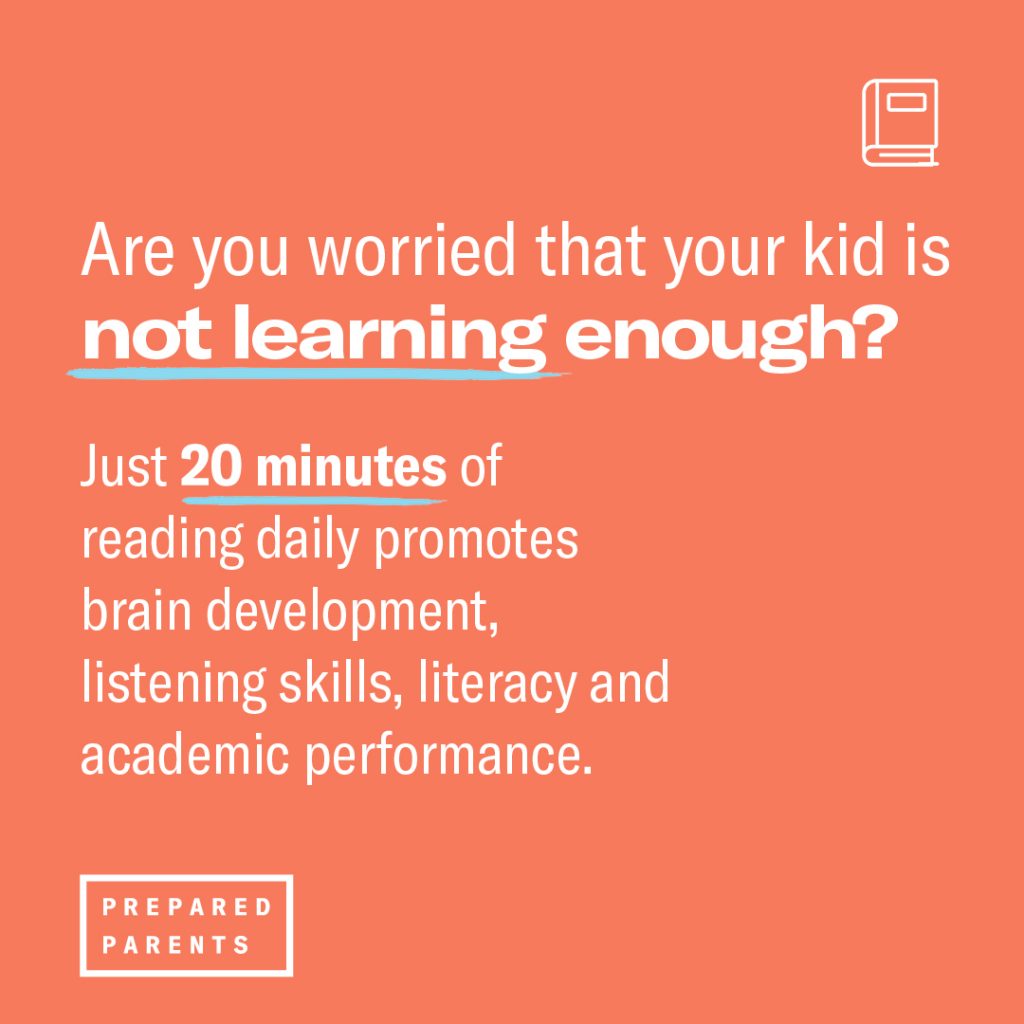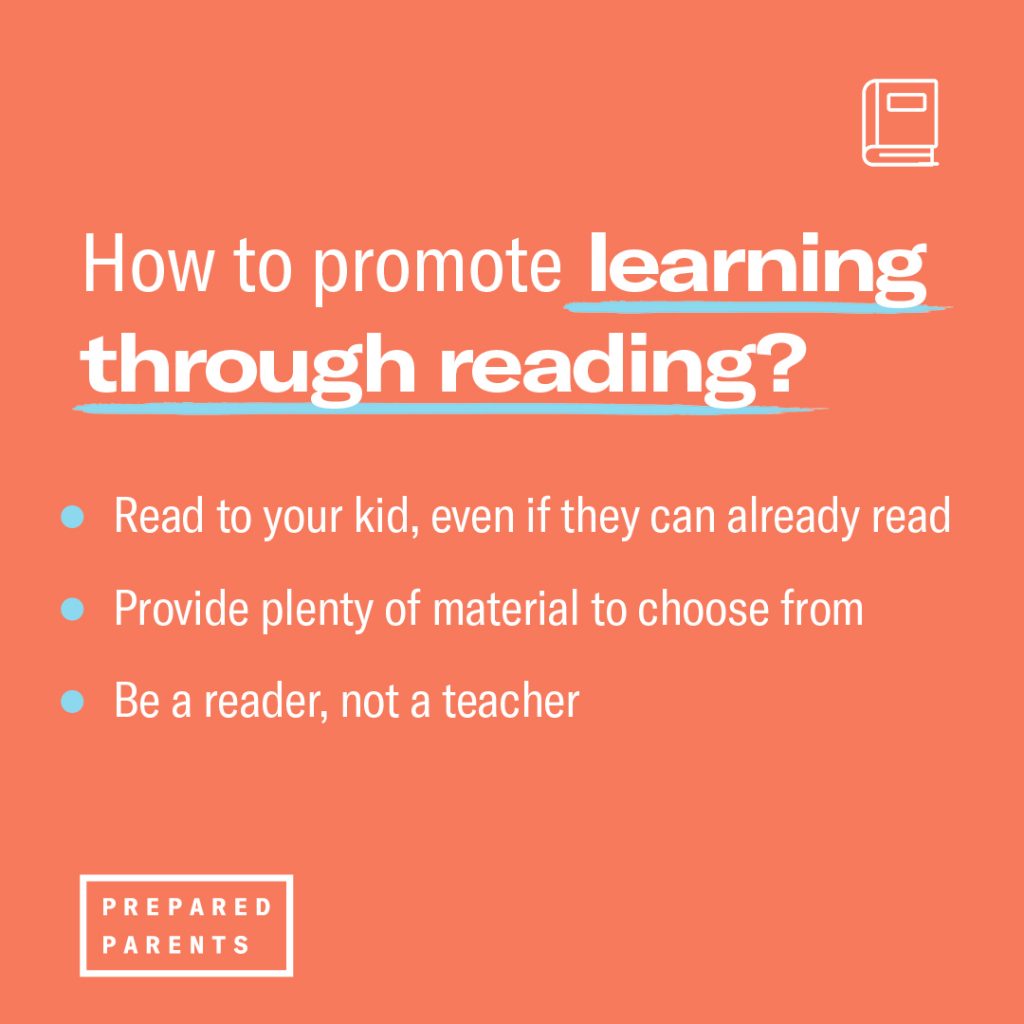Parents are often concerned about learning loss when kids aren’t in the classroom. But there is a surefire way to make sure kids continue to develop academic skills: focus on reading, even with young children.

All of learning is built on the foundation of reading. According to Diane Tavenner, long-time educator, Prepared author and co-founder and CEO of Summit Public Schools said, “As far as academic skills in early grades go, there is nothing more important than reading. If you do nothing else, teach kids to read, help them develop into confident readers, and through the use of reading and other means, help them build a wide set of knowledge and interests.”
Just 20 minutes of reading daily promotes brain development, improves listening skills, builds literacy, and elevates academic performance. Reading increases vocabulary, expands knowledge, and even reduces stress. In fact, books contain 50% more words than regular conversation, tv, or radio.

Every child is in their own zone, and can only learn what they are ready to learn. Helping a child acquire new skills and knowledge means understanding where the child is, and carefully supporting learning to meet that child within their zone.
Plan a regular reading time for every member of the family
“Kids need to see their parents read,” says Tavenner.
- Sit down together with your books and read simultaneously.
- Talk about what you’re reading.
- Share interesting information, stories, and ideas from your reading and invite your kids to do the same from books they’re reading.
Read to your kid, even if they already know how to read
Children who are read to at least three times a week by a family member are almost twice as likely to score in the top 25% in reading compared to children who are read to less than three times a week. “Here’s a chance to give them your undivided attention,” Tavenner advises. “Make this an enjoyable experience.”
- Create a reading nook, even if it’s the couch or your kid’s bed. Make it a comfortable place to snuggle together.
- Don’t rush. This time should feel special so your kid will associate reading with a positive experience.
Let your kid read to you, no matter how competent a reader they are
- Be patient. Young children who are just learning to read may stumble over words and work through stories slowly. Resist the urge to take over.
- Don’t continually correct mistakes. Offer help when asked.
- Listen closely as they read. Your undivided attention will be much appreciated.
- Provide plenty of reading material for kids to choose from.
Students who choose what they read and have an informal environment in which to read tend to be more motivated, read more, and show greater language and literacy development. Download the free app Libby to access e-books and other reading resources from your local library.
Be a reader, not a teacher
Tavenner cautions parents that it’s not their responsibility to teach kids to read. Reading readiness requires a complex combination of skills, including letter recognition and phonemic awareness.
“Parents who try to teach their kids to read run the risk of making the experience negative for the child, especially if you are forcing it before the kid is ready.”
You can spark your kid’s love of reading in a fun, even silly way, by showing them how to decode sounds.
- Instead of I spy with my little eye, play I hear with my little ear… a word that starts with the ‘ssss’ sound.
- Recite tongue twisters emphasizing the sound of each word: “Peter Piper picked a peck of pickled peppers” or “She sells seashells by the sea shore” to name just two.
- Emphasize each letter in a word to help your kid distinguish the sounds.
- Read the same book over and over while your kid points to each word. This will help them match the words with how they sound.
Greatschools.org has compiled a comprehensive book list for kids sorted by grade level. If you want to share reading responsibilities with a celebrity, check out Storyline Online.

